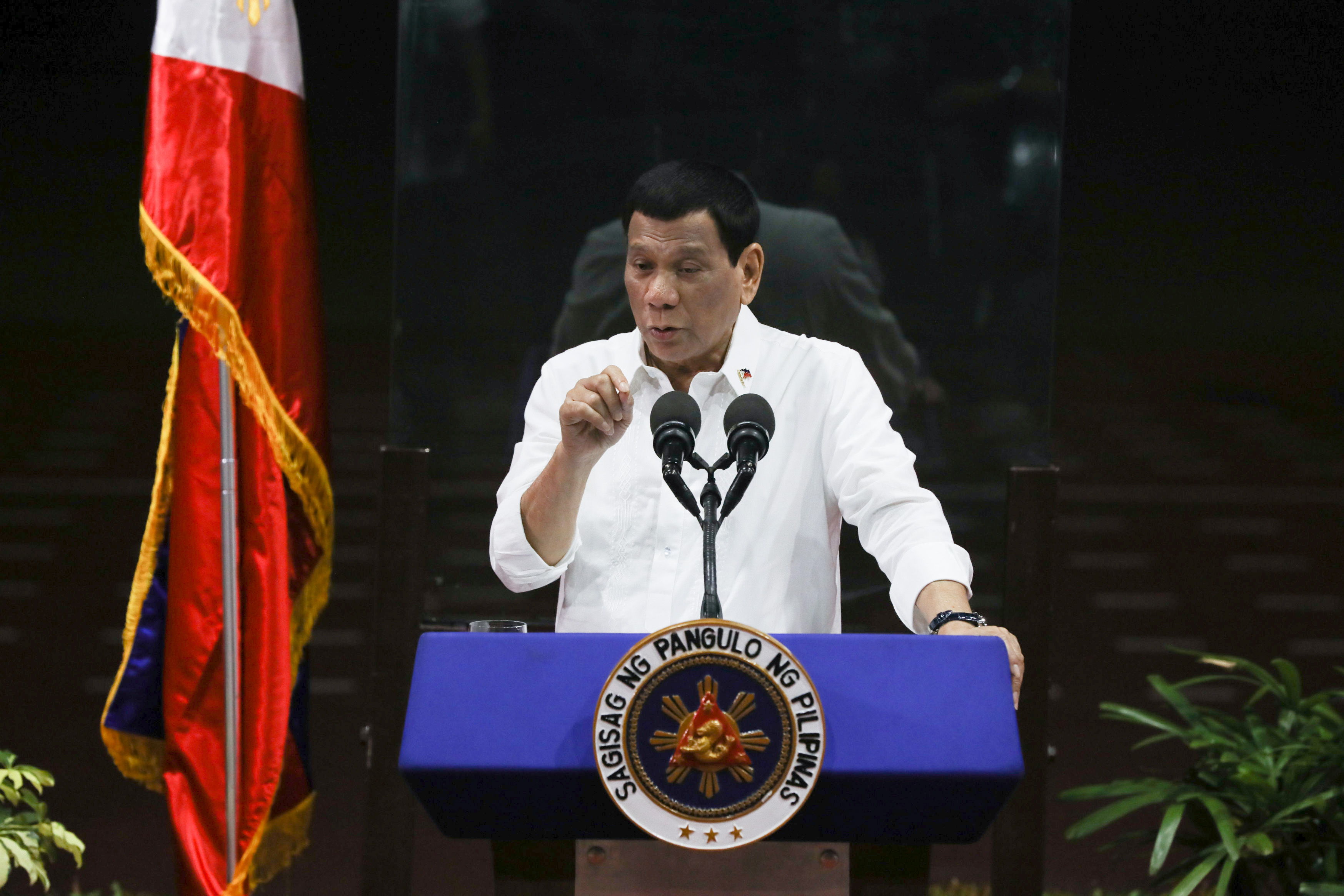By Rommel F. Lopez

President Rodrigo Roa Duterte delivers his speech during the ‘Araw ng Pasasalamat’ for the Overseas Filipino Workers (OFWs) at Camp General Emilio Aguinaldo in Quezon City on July 12, 2019. (Toto Lozano/Presidential Photo)
“I hope that this new law will be implemented strictly and properly, and will not exempt from compliance our public officials, especially Mr. Duterte who is infamous for his sexist jokes and misogynist remarks. He should respect his own signature under a presidential seal affixed in that law.”
This was the reaction of Sen. Leila de Lima after President Rodrigo Duterte signed Republic Act 11313 or the “Bawal Bastos” Act. The law severely penalizes “any unwanted and uninvited sexual actions or remarks against any person” in public places.
These acts include:
- catcalling;
- groping or any advances, whether verbal or physical that is unwanted and has threatened one’s sense of personal space and physical safety and committed in public spaces;
- misogynistic, transphobic, homophobic and sexist slurs;
- persistent uninvited comments or gestures on a person’s appearance;
- public masturbation or flashing of private parts;
- relentless request for personal details;
- statement of sexual comments and suggestions;
- unwanted invitations; and
- wolf-whistling.
Palace spokesman Salvador Panelo assured the president’s critics that Duterte would be the first one to obey the law.
“Since the President signed that law, it means that he recognizes the need for that law. Since he’s the chief enforcer of all the laws in the Philippines, he’ll be the first one to obey that (new) law,” Panelo said.
Duterte has been heavily criticized for his sexist jokes about women and rape in the past. He even once called then US ambassador to the Philippines Philip Goldberg “gay” and a “son of a w****.” Duterte also cracked another rape joke during this year’s graduation rites of the Philippine Military Academy.
His close associates often defend him, saying those statements are not to be taken seriously. Panelo, one of those who usually come to the president’s defense after a public outcry over his “jokes,” said the president was “never bastos (lewd).”
“When he cracks jokes, it was intended to make people laugh. Never to offend. If you will just listen to the jokes of the President, talagang matatawa ka e. Hindi naman bastos,” he said.
Panelo clarified that the new law is criminal in nature, which means the offended party must be offended personally. In what seems as a defense to upcoming jokes from the president, Panelo said a person should not be offended if he or she just heard a joke that was not intended for him or her.
“Pero kung general na nagkukwento mao-offend ka, paano mo sasabihin na ikaw ang tinutukoy nun? May problema ka doon,” he added.
Among those who appeared cynical of Malacañang’s assurance was the the Gabriela party-list group. In successive tweets, the feminist group said President Duterte’s signing of the ‘Bawal Bastos Law’ or the amendments to the Anti-Sexual Harassment Act throws an ironic shade on himself as he represents the single most brazen violator of the law’s intent with his staple macho-fascist remarks.”
The group accuses Duterte as the “chief propagator of a culture that degrades and objectifies women, and that which exhorts cat-callers, sexual offenders and even uniformed personnel to disrespect women.” Under this context, Gabriela said “implementing the law will certainly be a challenge.”
As if answering Gabriela’s tweets, Bawal Bastos Law principal author Sen. Risa Hontiveros tweeted “As I’ve said, the law is only as good as how it is implemented. We need to test the law and make sure it serves its purpose. Report sexual harassers.”
Violations may be punishable with community service of 12 hours up to arresto menor or 11 to 30 days imprisonment for the third offense. The new law was signed by Duterte last April 17, but Malacañang released the text to the public only on July 15.